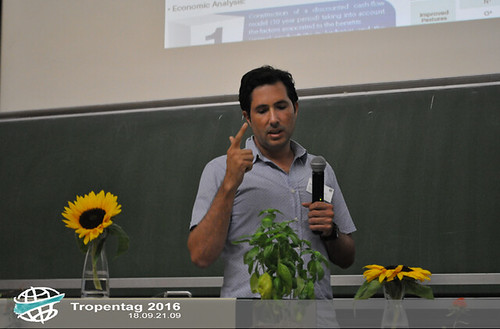Learning Crop Production Systems from Around the World
Many different cropping systems practices have been presented at today's Poster Session, and they come from all around the world. Directly from the University of Basel, for example, Schütz Lukas talked about the application of microbial inoculants as a promising science for sustainable agriculture. She found biofertiliser's use to be a viable technology to be applied in tropical and subtropical soil.

The benefits of bee-pollination on cash crop in Burkina Faso, then, was presented by Katharina Stein, from the University of Wuerzburg in Germany. “So far - she said - there is no report on contribution of bee pollination for crop yield of these crops in Burkina Faso”. In fact, her research shows well how bee-pollination can increase cotton fiber weight by 62% and can just triple the weight of sesame seeds. These numbers are a scientific proof that gratis pollination service by bees can be beneficial for small farmers and stakeholders. Too obvious to remind that natural savannah habitat in Burkina Faso would better be conserved?

Geissler Katja, student of Plant Ecology and Nature Conservation from the University of Potsdam, Germany, addressed the question “How Does Grazing Work in Semiarid Savannahs?”, especially in Southern Africa. In order to create sustainable grazing system, we have to understand the response of different patterns of grazing and drought. And exactly under drought-stress condition, she concluded, it is possible to recover the palatable grasses.

Besides the already mentioned researchers, other young scientists also presented their findings. Nuttapon Khongdee, for instance, studied growth and resource use of young rubber (Hevea Brasiliensis) in Hillsides, Northern Thailand. Or again, Greta Jordan research focused on crop production in a floodplain river oasis on the Mongolian Altay mountains.
Eventually, Patrick van Damme from the Department of Plant Production at Ghent University, expressed his gratitude to the diversity of crop production systems mentioned during the fruitful session. He also encouraged the students to keep gaining knowledge from the farmer practice around the world. Isn't he right?





Comments
Post new comment